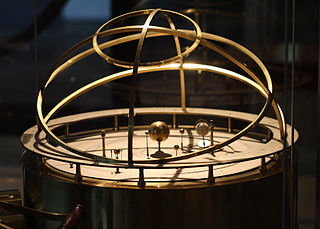Creation Corner
Myths about Science

First, let’s reflect on some not well-known facts in the history of science as well as about scientists. First the facts, then the myths.
Some science discoveries came earlier than most students learn
The astronomer Hiparchus, not known as an atheist, and who lived in the second century BCE, calculated the distance of the moon as 30 and 1/4 earth dimensions. That involves an error of a mere 0.3 percent. Not bad.
More familiar to moderns is the name of Copernicus. But few people know that Copernicus got his idea of a heliocentric (as opposed to a geocentric) universe from Aristarchus who studied the heavens some eighteen centuries earlier.
Still less known is the fact that Pope Leo X gave a lecture on the Copernican system contained in The Book of Revolutions. The book was published in 1543. Seventy-three years later the Church, under another pope, placed the book on the Index!
Galileo and his real problem
Consider now the reputed founder of modern science, Galileo Galilei, who brought astronomy down to earth by his mathematization of nature. Opposition to Galileo’s new science initially came not from the Church but from his colleagues at the university. At first, the Church extolled Galileo. And were it not for his obnoxious and egotistical character, such was his already established fame that he might not have been excommunicated.
Galileo was not exactly the stuff heroes are made of. His trial or inquisition, during which he recanted, should be compared with the trial of Socrates. I mention this because of currently misleading notions about science and scientists. No German scientist—not even the venerable Max Planck—publicly came to the defense of Jewish scientists who were dismissed from their university positions when Hitler came to power. Hence it’s absurd to identify science with humanism or even to regard scientists as the sole repository of objective knowledge.
As a matter of fact, Galileo was an ingrate as well as a dogmatist. He hardly mentions, let alone credits, the great Johannes Kepler, with whose work he was familiar. And despite Kepler’s discovery of the elliptical orbits of the planets, Galileo defended, to the end of his life, the circles and epicycles of Copernicus (who added epicycles to those of Ptolemy).
Science has its own problem with dogma
Actually, scientists can be, and have been, no less rigid than religionists. The history of science is replete with dogmatism. Scientists in the eighteenth and nineteenth centuries regarded Newtonian physics as the last word in man’s knowledge of the physical universe.
Scientists also have vested interests. As indicated above, the main opposition to Galileo came from the academic establishment. The reason is simple enough. Academics—physicists, astronomers, etc.—publish books and papers. Their views are matters of public record. Their prestige depends on maintaining the intellectual status quo. Along comes a genius like Galileo who rocks the academic boat.
Here I am reminded of the great mathematician and philosopher Alfred North Whitehead, who showed, more than seventy-five years ago, that much that passes for education in the social sciences is narrow and misleading. To be sure, the social sciences provide a great deal of useful information. But this information is limited by a narrow conception of human cognition or theory of what man can know. Thus, if you can’t see or measure something, it doesn’t exist. This view of existence is called “empiricism” or “positivism.”
If today’s empiricists or positivists were transferred back to the seventeenth century, they would have dismissed the question of what a planet weighs as meaningless. Had their narrow rationalism prevailed, the scientific revolution of that century would never have taken place!
Monotheism resolves fundamental contradictions in the laws of nature
Incidentally, Whitehead traces the origin of modern science to monotheism, that is, to the idea of a Creator God, a God of infinite intelligence. Indeed, without a Creator the two most basic laws of physics contradict each other. The first law, that of total energy conservation, suggests the eternity of the universe. But the second law, that of thermodynamics or entropy, states that every system, left to itself, always tends to move from order to disorder, its energy tending to be transformed into lower levels of availability for further work. Thus, when all the energy in the universe has been degraded to random motion of molecules of uniform low temperature, the universe will have died a “heat death.”
But the fact that the universe is not yet dead is clear evidence that it is not infinitely old. And so, whereas the second law, that of energy decay, requires the universe to have a beginning, the first law, that of total conservation of energy, precludes its having begun itself.
Actually, there are many quandaries in science. For example, the two theories of physical reality that have dominated the twentieth century contradict each other. Whereas relativity physics posits a fundamental determinism and continuity in nature, quantum physics posits a fundamental indeterminism and discontinuity in nature.
Speaking of quantum mechanics, let me quote the famous physicist J. Robert Oppenheimer, who had this to say about the mysterious position of an electron in the atom:
If we ask … whether the position of the electron remains the same, we must say “No”; if we ask whether the electron’s position changes in time, we must say “No”; if we ask whether the electron is at rest, we must say “No”; if we ask whether it is in motion, we must say “No.”
Science cannot know the human qualities
Clearly, commonsense language cannot explain mathematical physics. Perhaps this is one reason many social scientists sometimes abandon commonsense language for esoteric jargon. Of course they want to appear “objective” or “scientific.” If something can’t be quantified it is relegated to the domain of “subjectivity” or “ideology.”
And so we live under a reign of quantity as opposed to quality. By abandoning commonsense, however, these social scientists have undermined, among youth, knowledge of what is distinctively human: those things embraced by “the good, the true, and the beautiful,” things which cannot be quantified.
But just as some of the ancients knew more about the physical universe than succeeding generations, so some of the ancients knew more about the moral universe than our contemporaries. Let’s not sacrifice our intellects to science—certainly not to the so-called social sciences.☼
-

 Accountability2 days ago
Accountability2 days agoWaste of the Day: Principal Bought Lobster with School Funds
-

 Constitution2 days ago
Constitution2 days agoTrump, Canada, and the Constitutional Problem Beneath the Bridge
-

 Executive22 hours ago
Executive22 hours agoHow Relaxed COVID-Era Rules Fueled Minnesota’s Biggest Scam
-

 Civilization21 hours ago
Civilization21 hours agoThe End of Purple States and Competitive Districts
-

 Civilization4 days ago
Civilization4 days agoThe devil is in the details
-

 Executive4 days ago
Executive4 days agoTwo New Books Bash Covid Failures
-

 Civilization4 days ago
Civilization4 days agoThe Conundrum of President Donald J. Trump
-

 Executive4 days ago
Executive4 days agoThe Israeli Lesson Democrats Ignore at Their Peril











